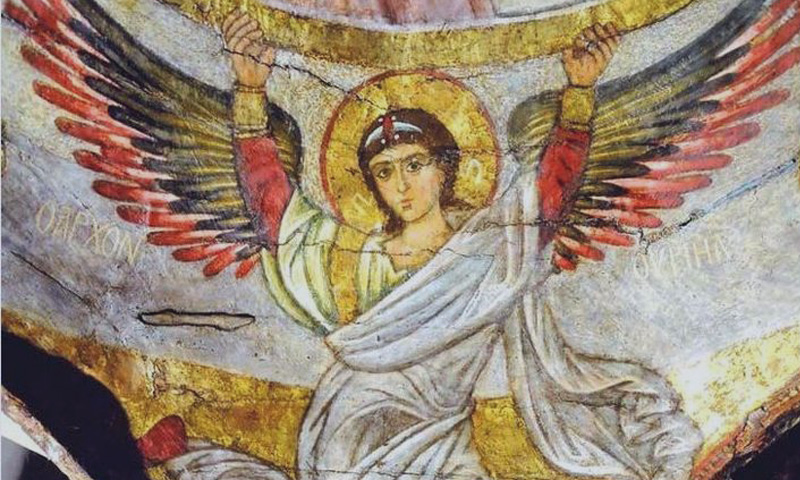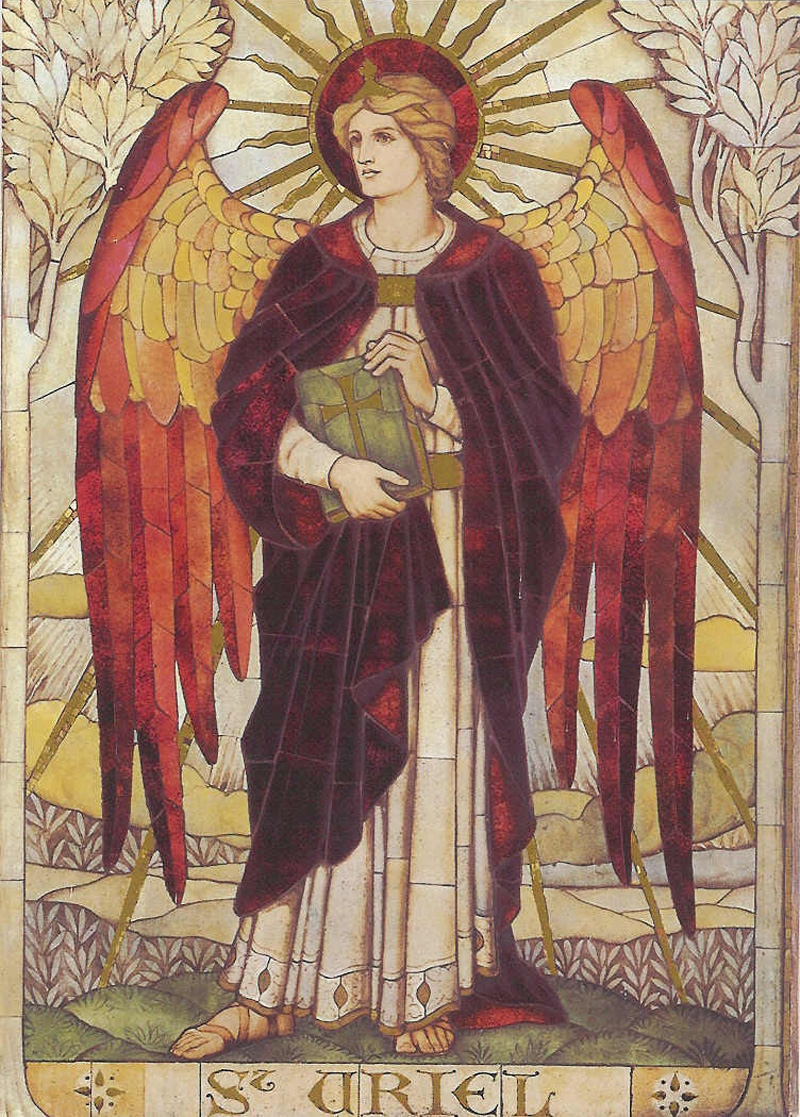
Who is the archangel Oriel ?
A little history
From the Sumerian “Our” meaning Flame or Light, the name of the Archangel Oriel is translated as “Light of God” or “Fire of God”.(1)
The motto of Oxford University “Dominus Illuminatio Mea” is a literal translation of the name Oriel.
Oriel figures extensively in Early Christianity, as evidenced by images from the 17th century found in churches in Latin America.
In the Anglican Church, Oriel is the “angel whom the Lord of glory has appointed to all the stars that shine in the sky and light up the earth.”
Le culte de l’archange Oriel est également répandu au sein de la religion orthodoxe qui place Oriel parmi les sept Archanges majeurs qu’elle reconnaît. The Coptic Church (2) continues to use the Septuagint Bible (3) in its entirety, with its references to Archangel Oriel. It contains the book of book of Enoch, where Oriel is frequently mentioned.
Why did we chose the name ORIEL for our firm ?
Oriel has two wings to guide his flight, just as we help to guide you in your business decisions. These wings also signify that we come from outside France. Indeed, we grew up abroad, and emphasise this perspective in our firm’s values, in the idea of freedom. These wings can take us wherever we want to go.
They also illustrate the load we take off our clients’ minds when they entrust us with their legal affairs.
The archangel thus connects heaven and earth. A powerful benevolent messenger, Oriel embodies other important notions for the firm: security, order, integrity, hindsight, balance and wisdom.
Oriel is the Archangel of Light. However, the cases entrusted to us are often challenging and sometimes critical. Our ability to listen and analyse situations in-depth, and with precision, helps to clarify them and to determine practical ways to move forward.
Finally, Oriel carries a flame that symbolises energy and vigour, which match our values such as action, commitment and courage.
1: Oriel also exists in Hebrew and in French as Uriel.
2 : The Copts are the largest Christian community in North Africa, the Middle East, and one of the oldest in the world.
3 : Older version of the Bible including books not retained by today’s Catholic Church.
 Mosaic of St Uriel by James Powell & Sons, in the anglican church of St John the Evangelist of Warminster, Wiltshire (England)
Mosaic of St Uriel by James Powell & Sons, in the anglican church of St John the Evangelist of Warminster, Wiltshire (England)

